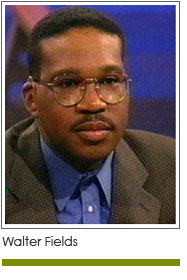 President Barack Obama appeared at the door of the chamber of the House of Representatives Wednesday night with a broad grin on his face, and strode down the aisle confidently and approached the lectern as if somebody owed him money. Disproving pundits who expected him to be sheepish during his first State of the Union Address, Barack Obama made it clear whom the public elected President in November 2008 and that he was up to the challenge.
President Barack Obama appeared at the door of the chamber of the House of Representatives Wednesday night with a broad grin on his face, and strode down the aisle confidently and approached the lectern as if somebody owed him money. Disproving pundits who expected him to be sheepish during his first State of the Union Address, Barack Obama made it clear whom the public elected President in November 2008 and that he was up to the challenge.
Reflecting back on the President’s speech, I can understand MSNBC’s Chris Matthews’ awkward declaration that he forgot Barack Obama was Black. Seeing President Obama standing at the lectern, as he was introduced by House Speaker Nancy Pelosi as “the President of the United States,” was a surreal image in a country where Black men have had little history of possessing “official” power in this country. The ease with which Barack Obama has assumed the mantle as the leader of the “free world” defies centuries of history that saw Blacks in the United States denied their rights. Matthews’ observation, in my mind, was simply the shock that given that history, Barack Obama’s race, at least on that night, was not a factor in his status as the nation’s 44th President.
For Obama, the night represented not so much an opportunity to reclaim the mantle of “change,” as many pundits suggested, but a moment of clarity about his intentions to lead the nation. On so many occasions in the past, Presidents have used the State of the Union as a defense, a rebuttal to the claims of the political opposition. President Obama did not rebut his critics, but instead made the case for his leadership, and by doing so, made it clear that he does not intend to play into the hands of polls, the Republican opposition, or even those wavering in his own party. While many people expected him to play it safe, and speak in a conciliatory tone, President Obama made clear who occupies 1600 Pennsylvania Avenue. In one of the most telling moments of the evening, the President looked squarely at the members of the United States Supreme Court sitting before him and chastised them for their recent ruling on campaign finance law. Though some believe he may have crossed the line, in terms of protocol and federalism, few can deny that the nation’s highest Court is not affected by politics and is political itself. The President’s criticism of the Court was even more dramatic given the obvious tension between he and Justice Samuel Alito, whose nomination Mr. Obama opposed when he was in the Senate.
What has been missing over the last several months is the President’s swagger; the confidence he exuded on the campaign trail and that convinced Americans that he was the individual that could get the nation back on track. His biggest achievement on Wednesday night was that he did not take the advice of some Democrats who wanted him to pull back from his agenda. Unlike Republicans, Democrats have a tendency to cower at the first sign of criticism. Where Republicans stood by George W. Bush for eight years despite the debacle in Iraq and an economic fiasco, Democrats were ready to abandon ship over the loss of a Senate seat in Massachusetts. Given the tremendous challenges we face as a nation, what is required now is courage and not cowardice. Thankfully, President Obama exhibited the former when he challenged members of both parties to place the interest of the public over politics, and scolded Republicans for using every difference with their Democratic colleagues as an opportunity to run a perpetual campaign.
As for those Republicans, was any picture more telling than an all-white caucus in 2010? What is even more ironic is that today’s Republican Party would have no room for the likes of a Charles "Mac" Mathias, a progressive former Maryland Republican Senator who recently died, or an Edward Brooke, a Black Republican from Massachusetts, who was the first Black to serve in the U.S. Senate in the 20th century and had the courage to oppose President Nixon during Watergate. The GOP has become the party of “right-white” resistance, and it cannot even mask its disdain for the nation’s first Black President or the millions of Americans he seeks to help.
I am not about to claim that President Obama has done everything right. I wish he had delayed pushing health care reform and focused from the outset on job creation. I also wish he would acknowledge that Black Americans are bearing a disproportionate share of the nation’s burdens, from unemployment to health care disparities. For now though, I will acknowledge that his presence and attitude are a vast improvement over the Bush era, and encourage those who support him to do their part and become active in efforts to change this nation for the better.












